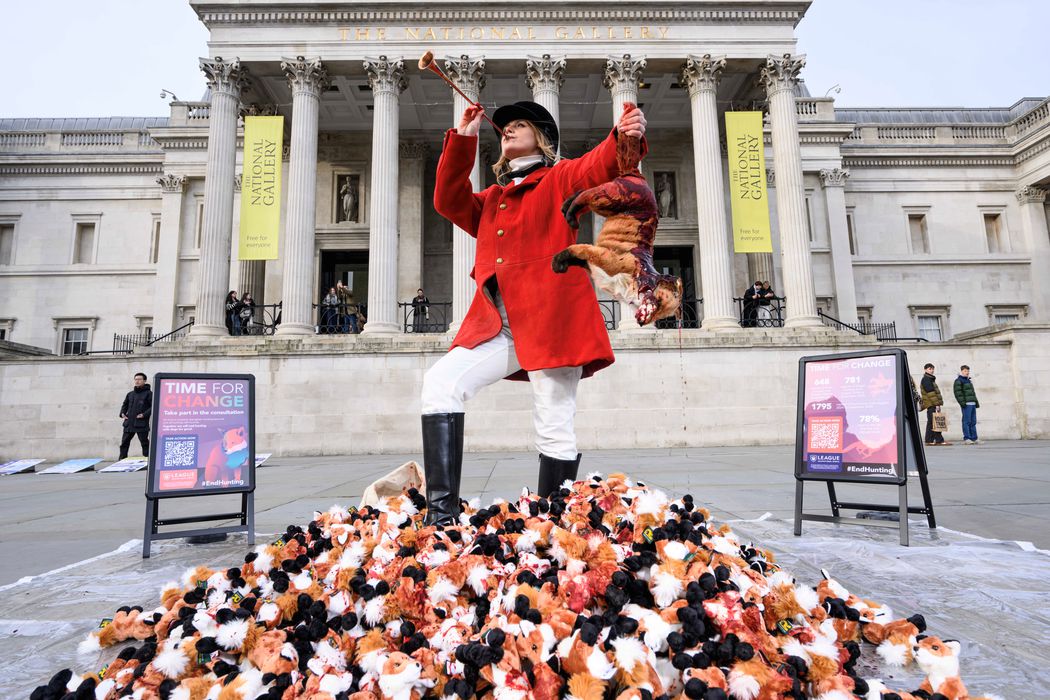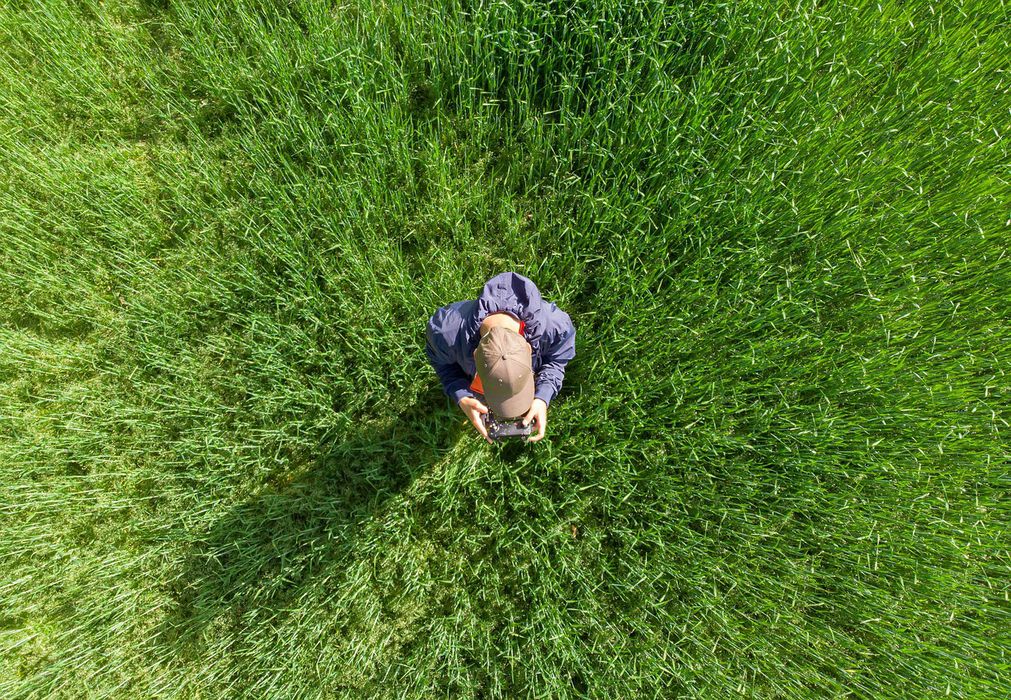You are helping to keep pressure on the government
Trail hunting continues to provide cover for the brutal chasing and killing of foxes. While the government delays action, hunts are still operating across the countryside.
But because of the determination of supporters like you – and the generosity of the donors who fund this work – the pressure for change is growing.
In just one month, more than 36,000 people signed an open letter to Keir Starmer. The letter called for the government to press ahead with its promised consultation to ban trail hunting. Campaigners raised their voices. Donors are making sure those voices are heard.
In London and Birmingham, powerful public events exposed the scale of illegal hunting still taking place. A League ‘hunter’ piled 648 bloodied fake foxes in Trafalgar Square and central Birmingham – one for every report received of a fox being chased by hunts since this government took power. It was a visible reminder that foxes are still paying the price while loopholes remain.
None of this happens without sustained support. Thank you.

No place to hide - the technology you fund is changing everything
Supporter-funded investment in drone technology is transforming how evidence is gathered. From above, the full picture can be seen clearly – how hounds are deployed, whether attempts are made to call them off, and what really happens on the ground.
Recently, donor-funded field operatives secured powerful drone footage appearing to show the Middleton Hunt chasing a fox while making no effort to stop the hounds.
Because supporters have equipped the League with advanced technology, the footage was clear, detailed and impossible to dismiss.
It went on to feature in a hard-hitting Channel 4 News investigation, alongside further evidence from monitors and saboteurs documenting hunts pursuing foxes.
The national exposure matters.
When the public can see events unfold from an aerial perspective, the claim that trail hunting is a harmless exercise becomes far harder to defend.
The police lead on fox hunting crime, Chief Superintendent Matt Longman, described trail hunting as a “smokescreen” and made clear that enforcement must focus on catching criminals.
Technology has become a game changer in these efforts. It allows cruelty to be documented safely, independently and in real time. And that is only possible because donors ensure the League can keep pace with – and outpace – those determined to evade the law.

Within reach – the ban supporters are powering in Northern Ireland
Northern Ireland remains the only part of the UK where fox hunting is still legal.
But change is now within reach – and donors have helped make this moment possible.
Thanks to sustained supporter-funded campaigning, a Bill to ban hunting with dogs is set to be introduced at the Northern Ireland Assembly at Stormont.
For years, progress has required patience, persistence and consistent pressure. Donor support has ensured that campaigning in Northern Ireland never stalled – even when national attention moved elsewhere.
Now, as the Bill comes forward, supporters will be mobilised to contact their Members of the Legislative Assembly to back the ban.
If successful, fox hunting would finally be illegal across the UK.
That would be a landmark step – built on long-term commitment, steady campaigning and the belief that cruelty should have no safe haven.


